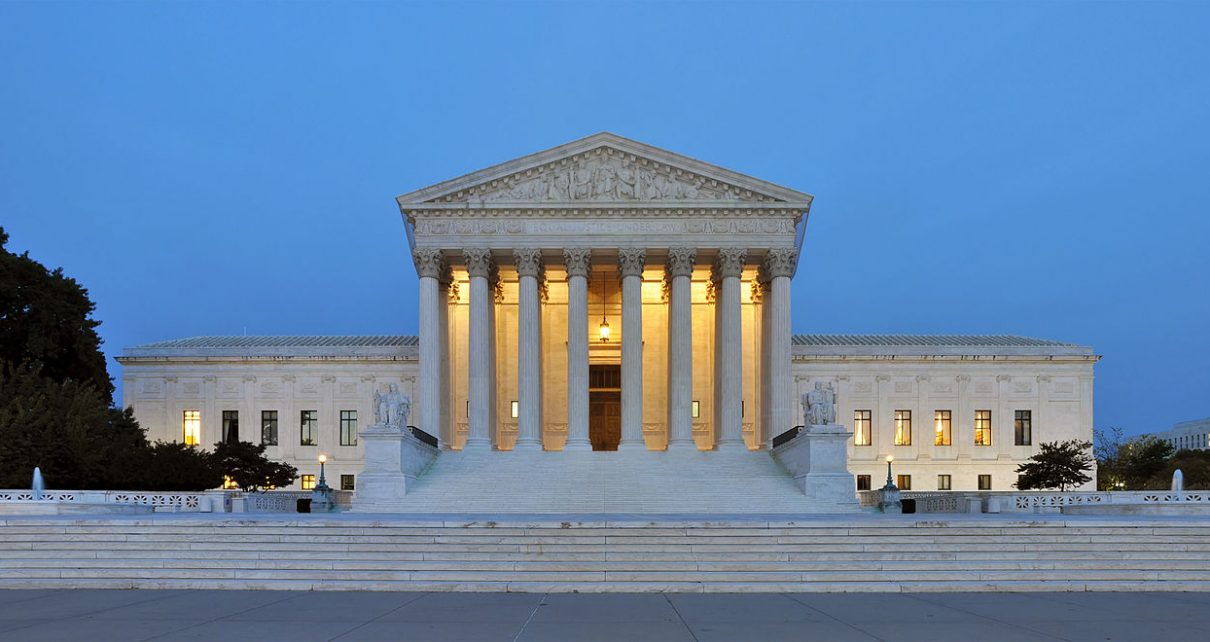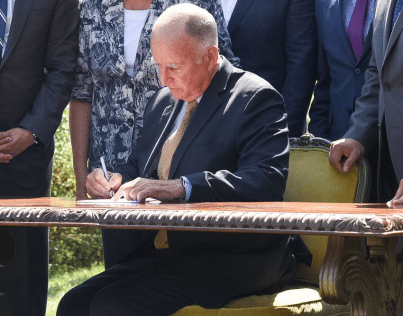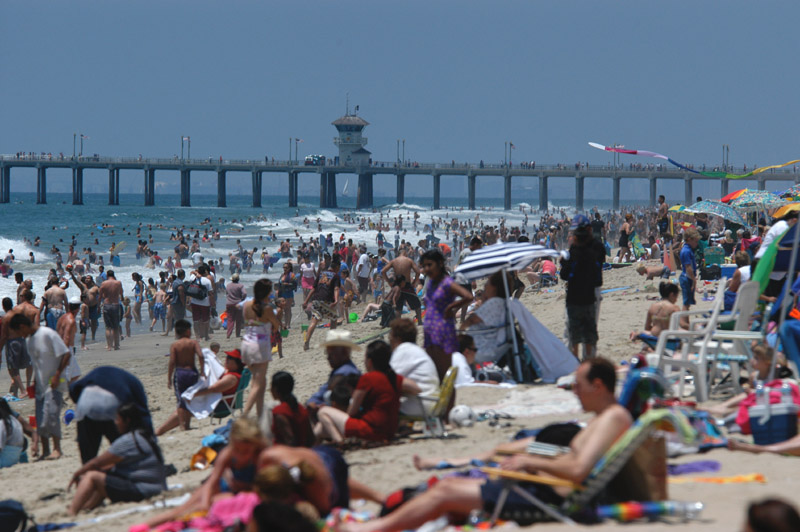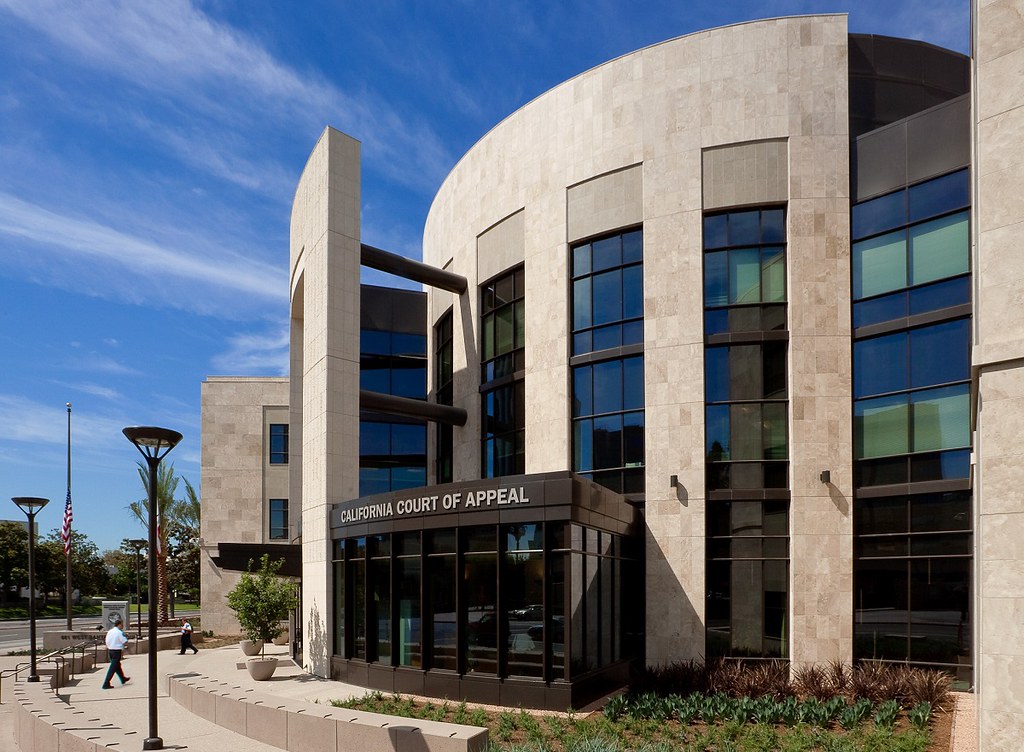
Supreme Court of the United States. (Photo: U.S. Supreme Court)
Supreme Court Turns Down California Sanctuary Law Case
State and local law enforcement in California will continue to not assist federal immigration officials
By Evan Symon, June 15, 2020 2:58 pm
On Monday, the U.S. Supreme Court refused a Department of Justice request to review a federal appeals court decision that upheld the 2017 California sanctuary law.
The Supreme Court refuses to hear the SB 54 case
The law, Senate Bill 54, prohibits state and local law enforcement agencies in California from assisting federal immigration authorities. By not allowing state law enforcement money or manpower being used for immigration enforcement, it in effect created a sanctuary for illegal immigrants who were arrested. While they can still be punished under California law, SB 54 halted or delayed outright deportation.
Many states and cities subsequently followed California’s lead, including New York, New Jersey, Washington state, Chicago, and Philadelphia.
Monday’s Supreme Court decision to not hear the case has subsequently made the Appellate court precedent, foiling any chance of overturning SB 54 for the time being.
Supporters, immigrants applaud decision

Supporters of SB 54 and similar laws around the U.S. celebrated the news on Monday. California Attorney General Xavier Becerra, who had been one of the key defenders of the law, noted that the law not only led to a better police and immigrant community relationship, but also allowed states to keep their own laws.
“That’s why this fight mattered so much,” said Attorney General Becerra in a statement on Monday. “We’re protecting Californians’ right to decide how we do public safety in our state. The Trump Administration does not have the authority to commandeer state resources. We’re heartened by today’s Supreme Court decision.”
Immigrants who had been affected by the law also rejoiced.
“I came here illegally 6 years ago after a gang vowed to kill me and my family for not paying ‘protection money,” Eduardo Ortega said, partially through a translator. “We knew the U.S. was tough, but it was also safe.
After [SB 54] was passed, we relaxed and I started working towards citizenship. The police saved me and many others one day by not working with ICE. They had come into town to pick up people for deportations, but they said they legally couldn’t help. The police knew who some of us were too.
If it wasn’t for them, I wouldn’t have been able to work myself up to get a green card and I probably would have been killed back in El Salvador. That’s why this law is important to many of us. It gives us a chance to work towards becoming citizens and saves our lives.”
Ortega’s translator, Cathy Tyler, pointed out that illegal immigrants tended to commit fewer crimes once on U.S. soil as well.
“You hear of the bad ones, especially murders and robberies that have to do with the cartel, but most keep their head down and are very law abiding. They know if they’re picked up for anything that it could lead them to being deported. Even with SB 54 in place. So most aren’t going to try anything. The already violent and the desperate. Those are the undocumented workers committing crimes; everyone else is just too afraid of getting picked up.”
Those against SB 54, sanctuary laws leave disappointed, vow to challenge it again
Many were also disappointed in the decision on Monday not to hear the case, including the Trump administration and Department of Justice officials who were to try the case.
President Donald Trump, who remains vehemently opposed to sanctuary laws due to safety concerns and interference with federal immigration police, has noted his position on the law numerous times since 2017.
“California’s Sanctuary laws release known dangerous criminals into communities across the State,” tweeted Trump in 2018 when Orange County officials joined Trump officials in opposing the law. “All citizens have the right to be protected by Federal law and strong borders.”
….release known dangerous criminals into communities across the State. All citizens have the right to be protected by Federal law and strong borders.
— Donald J. Trump (@realDonaldTrump) March 28, 2018
“Illegal immigrants can still very much be deported, but this has made immigration official’s jobs so much harder,” said Derek Jones, a retiree in Imperial County who often sends tips to immigration authorities. “We’re right at the border, and it’s hard to feel safe at night. Illegal immigrants are a big part of the crime around here. I’ve had to install little cameras and double lock everything because I had some tools stolen from a shed. I’ve even had to begin to lock up my hose and faucet because people began using it at night.”
“That’s the reality you don’t hear about. They’re afraid? Well I’m afraid too.”
Despite not being heard, the DOJ has remained committed to somehow overturning sanctuary laws.
“We will consider taking action against any jurisdiction or any politician who unlawfully obstructs the federal enforcement of immigration law,” Attorney General William Barr said in a speech.
- Bill to Require Law Enforcement Disclosure if AI Was Used To Help Write Reports - August 7, 2025
- Gov. Newsom Files FOIA Request To ‘Expose True Cost’ Of L.A. Federal Troop Deployment for Anti-ICE Riots - August 6, 2025
- California Redistricting: How Newsom’s Plan Will Demolish Hard Fought GOP Gains - August 6, 2025





So much for the argument that conservatives appointed to the SCOTUS will rule judicially.